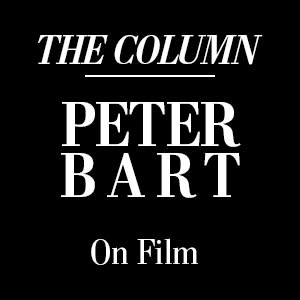Peter Bart: My 1975 New Year’s Resolution Was To Quit Hollywood – And Here’s Why


I’ve always avoided New Year’s resolutions, but this week I happened to recall one that was brief but resolute: I resolved to quit Hollywood.
And I did. Almost.
More from Deadline
That decision seems relevant today for reasons that require a bit of history. Consider January 1975, 50 years ago: It was a Hollywood moment that was the opposite of the present, both in numbers and nuance. It was a great time to be around – and not to be.
The audience was expanding and was determined to get scared: Jaws was a smash. But millions also were welcoming the weirdities of One Flew Over the Cuckoo’s Nest. TV fans were puzzled over something new called SNL, and music fans continued to discover Elton John (still are).
As box office kept growing, opportunity was abundant. Words like “downsizing” or “contracting” were still unknown.
There were hints of quantum change, but just hints: The Hollywood studios were healthy if thinly financed with giants including Sony, General Electric or even a few telcos studying the landscape, and “Amazon” meant just a jungle.
RELATED: 71 Films From Around The World That Could Light Up Festivals In 2025
Oscar Night 50 years ago delivered portents of change. Bob Hope was again presiding as he had done since 1940. Fred Astaire won a special honor, as a tribute to Hollywood’s past. The mood seemed sentimental even as the spotlight was shifting to new stars and filmmakers of the moment.
Francis Coppola and Steven Spielberg were redefining box office while their fraternity preferred to talk about modestly budgeted movies like Taxi Driver or Dog Day Afternoon.
If our movies were about to change, so were our politics. Saigon had just fallen, and the debacle of Vietnam finally was ending. Richard Nixon had succumbed to the realities of Watergate, and Gerald Ford was vacationing in the White House until an unknown Jimmy Carter brought him back to reality.
RELATED: Jimmy Carter Dies: Longest-Living U.S. President Won Nobel Peace Prize For Advancing Human Rights
At post-Oscar parties, both the winners and the studio decision makers seemed very young, very male and also very unaware of change. The partying decision-makers were mavericks like John Calley, David Picker, Robert Evans and Richard Zanuck.
None would have imagined a Hollywood ruled by worldly women like Bela Bejaria or Donna Langley. Or a production agenda that was more a stream than a slate.
Paramount, where I was employed, had pulled together an elite fraternity of directors including Coppola, Roman Polanski, John Schlesinger, Robert Altman and Hal Ashby that was the envy of other studios. But Paramount, too, showed signs of imploding. The chaotic structures of the ’60s and ’70s no longer were working.
Coppola’s contract on The Godfather Part II reflected the atmosphere of defection. It mandated that he would talk with no one at the studio until delivery of final cut. I spoke to Coppola and his producer, Gray Frederickson, because our personal relationship dated back to pre-production of 1972’s The Godfather. The scheduled release of the first Godfather had been delayed by three months due to fights with management over the edit — a delay that prompted negative buzz about the film.
To me, the signals were clear: The era of the indie-oriented studio was ending. The slates now envisioned blockbusters and franchises. And lurking in the distant future were words like “streamer” and “algorithm.”
New Year’s 1975 needed a smart resolution. And a strong drink. And, yes, I did quit.
Best of Deadline
The 2025 Golden Globes Parties & Events Photo Gallery: Red Carpet Rollout
The Highest Grossing Movies At The Box Office Every Year Since 1977
Sign up for Deadline's Newsletter. For the latest news, follow us on Facebook, Twitter, and Instagram.

 Yahoo Lifestyle
Yahoo Lifestyle 